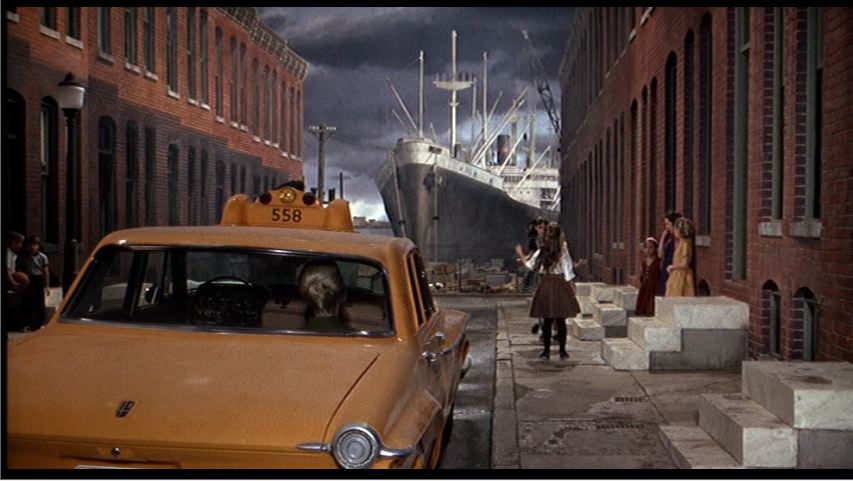»Marine Marnie
Marine Marnie

Strong evidence, including details both lingustic and aural, binds Marnie and Mark to the image of the ocean. The root of Marnie's problems is a sailor - indeed, his spirit in the form of a hulking phallic boat persists in the film's scenery. Her sexual breakthrough takes place at sea; similarly, her flashbacks' Sailor Motif bears strongly oceanic musical qualities. Indeed, Mark's continuing interest in "Marine Life" points to a continuation of even the animal metaphor in Hitchcock's dichotomy between land and sea.
This continuing animal metaphor reminds us that Mark – being, as he is, the prime Hitchcockian male – does not intend to elevate Marnie to the level of a human. Critically, the persistence of the animal metaphor casts into question whether Mark actually seeks to defang his “jagurandi” at all. It would appear that he does not intend to simply “tame” her – rather, he seeks to transform her into (or, perhaps, simply reveal) a fundamentally different form of (animal) life. He seeks to draw her back to her “natural” environment in the figurative water.
The contrast between the pinnacle of Marnie’s illusion of freedom – namely, her horse and metaphorical compatriot land animal Forio – and the freedom of the ocean world to which Mark hopes to return her raises questions both philosophical and spiritual – questions which, like so many other aspects of Marnie, have occurred indefatigably through Hitchcock’s work. In urging Marnie to reject the world of the concrete, could Mark be interpreted as sustaining the anti-consumerist ethic that has appeared below the surface in previous Hitchcock films? Alternatively, the ocean is, especially in the religious customs of seaside cultures, traditionally associated with concepts of the infinite. Could this notion carry with it implications painting Mark as a savior rather than a hyperchauvinist man? Does Hitchcock perceive any difference between these two?